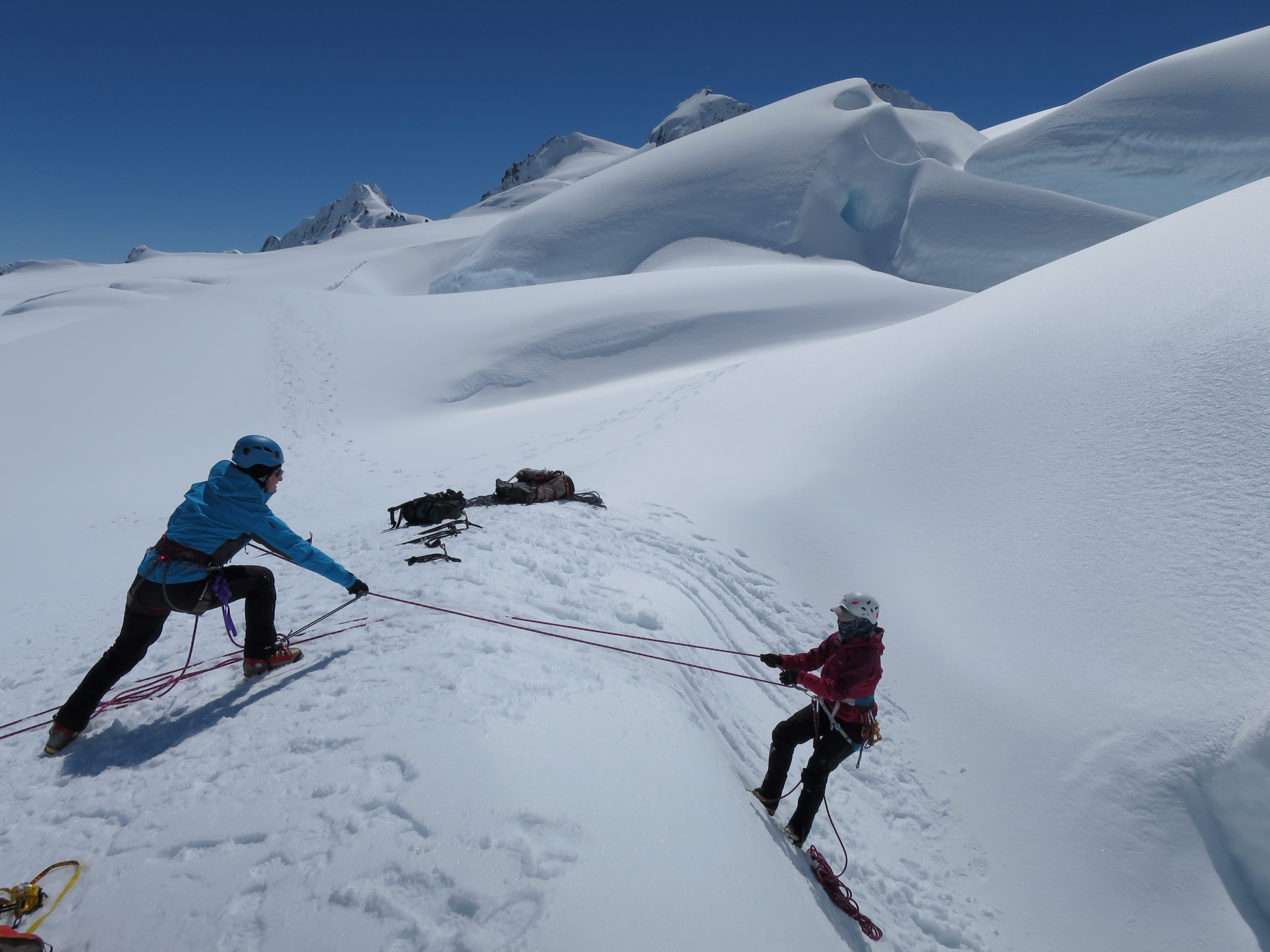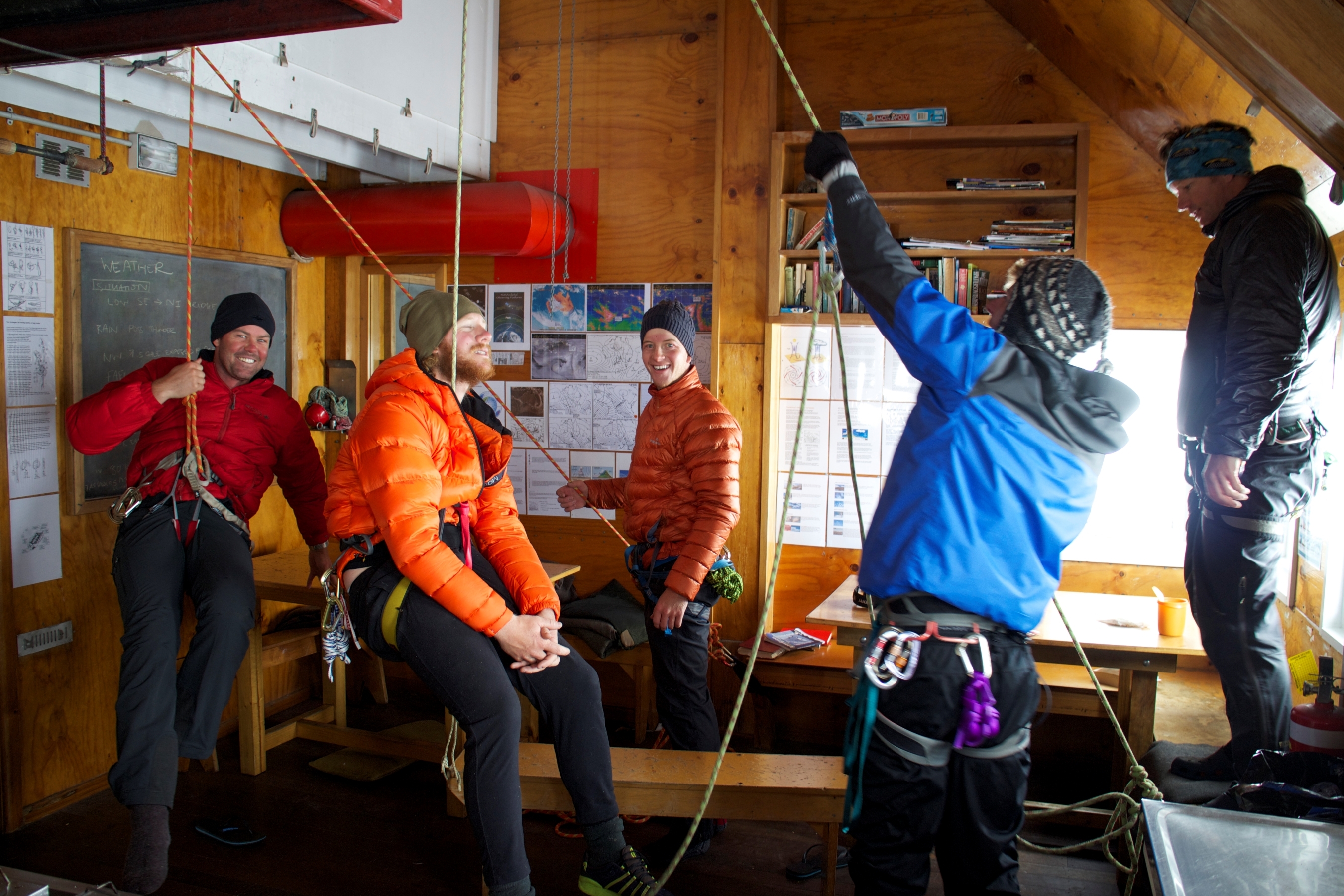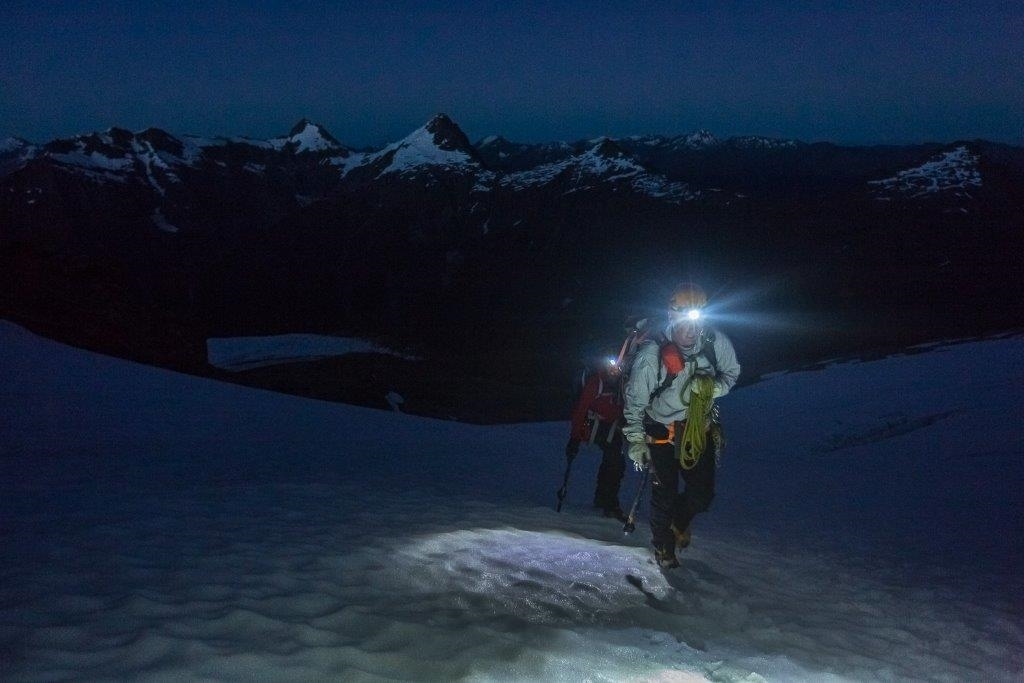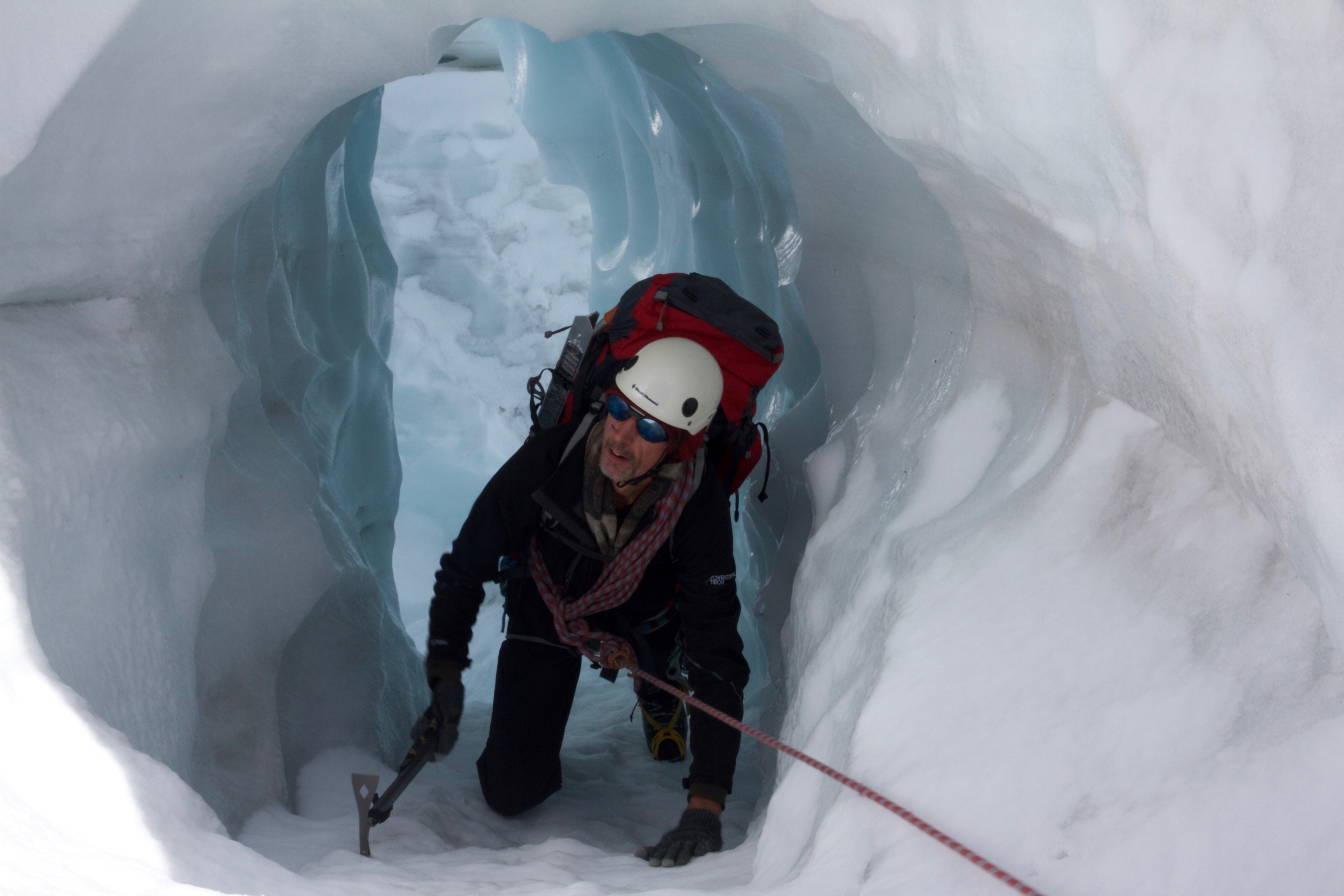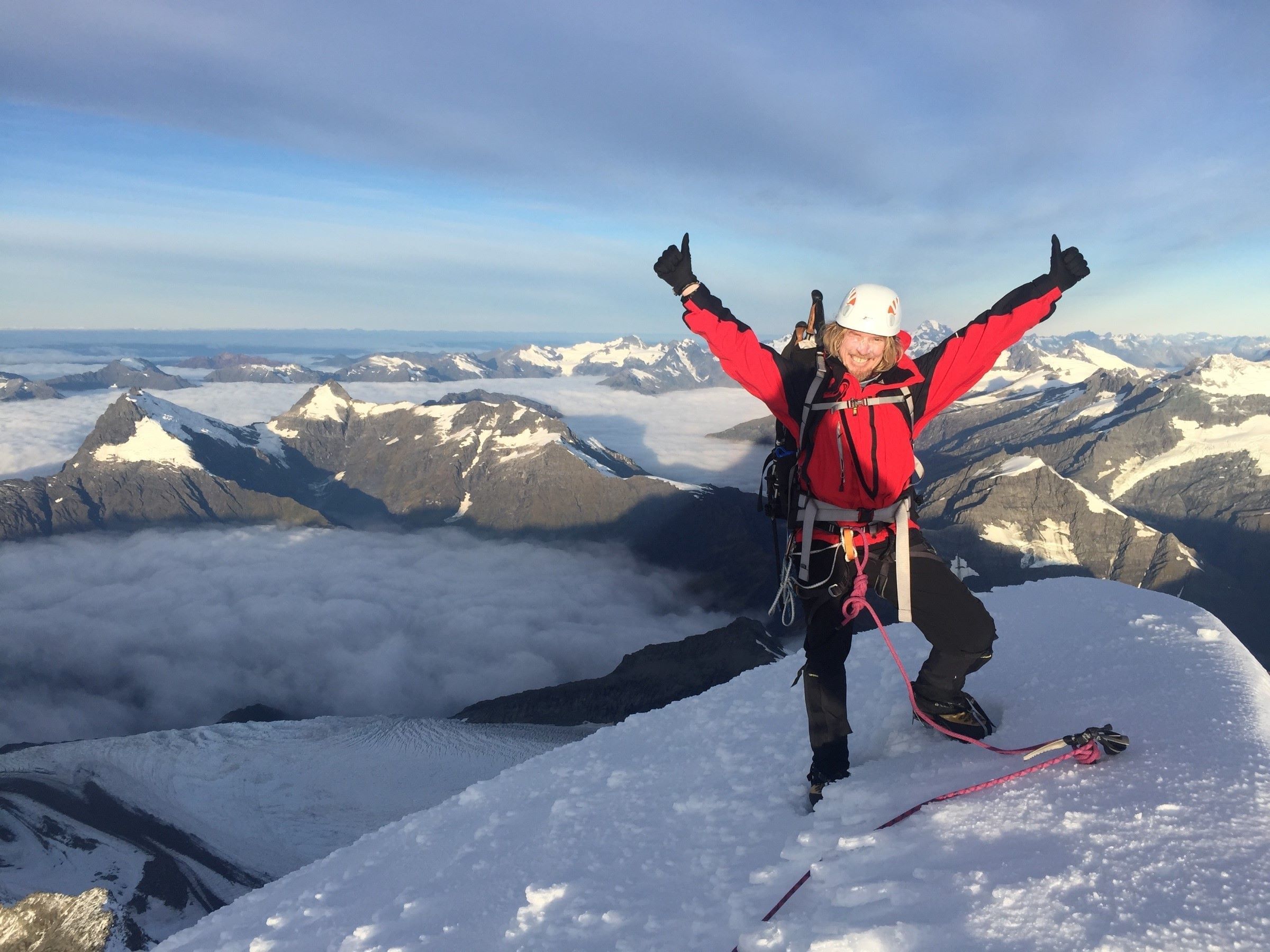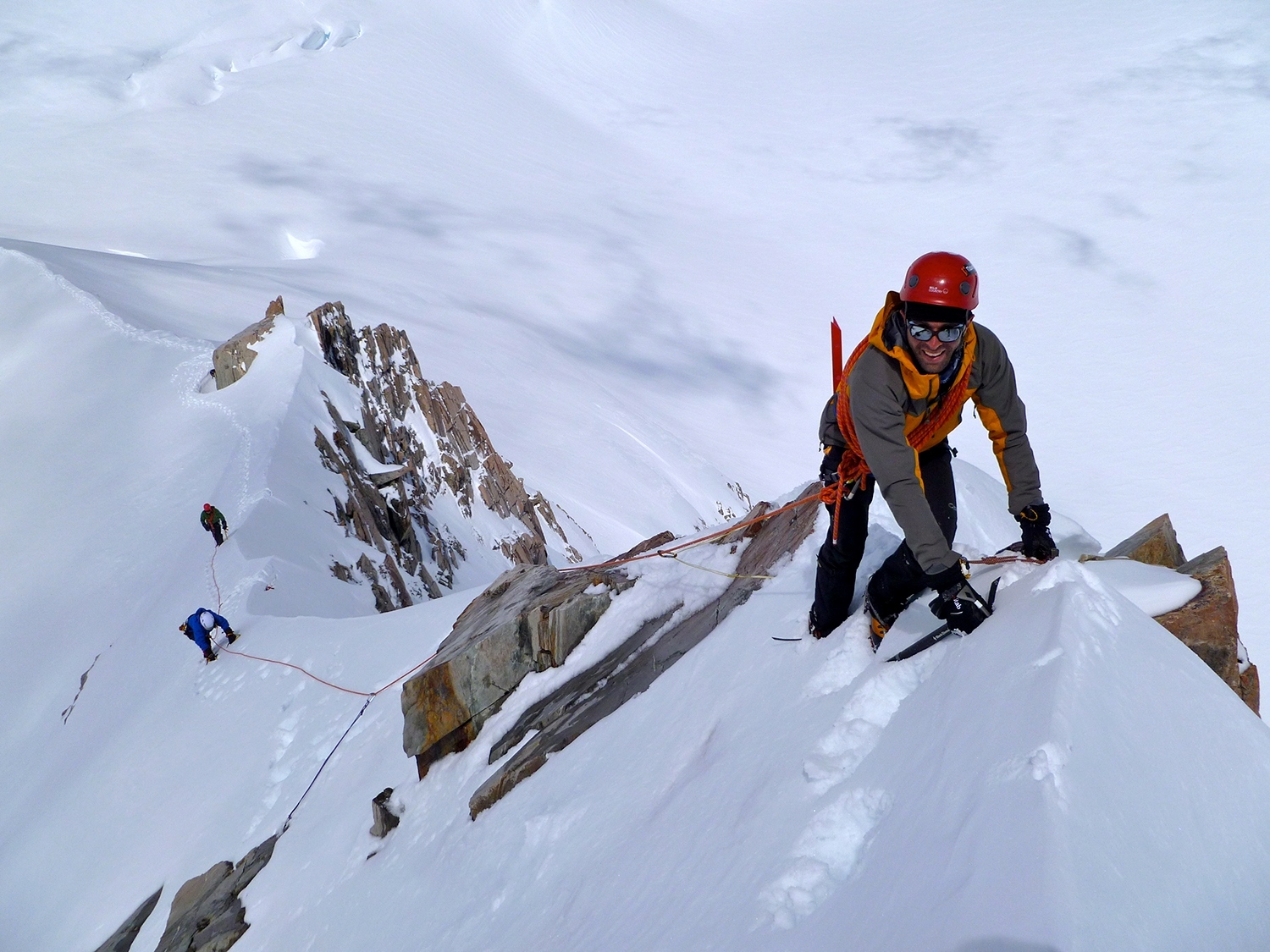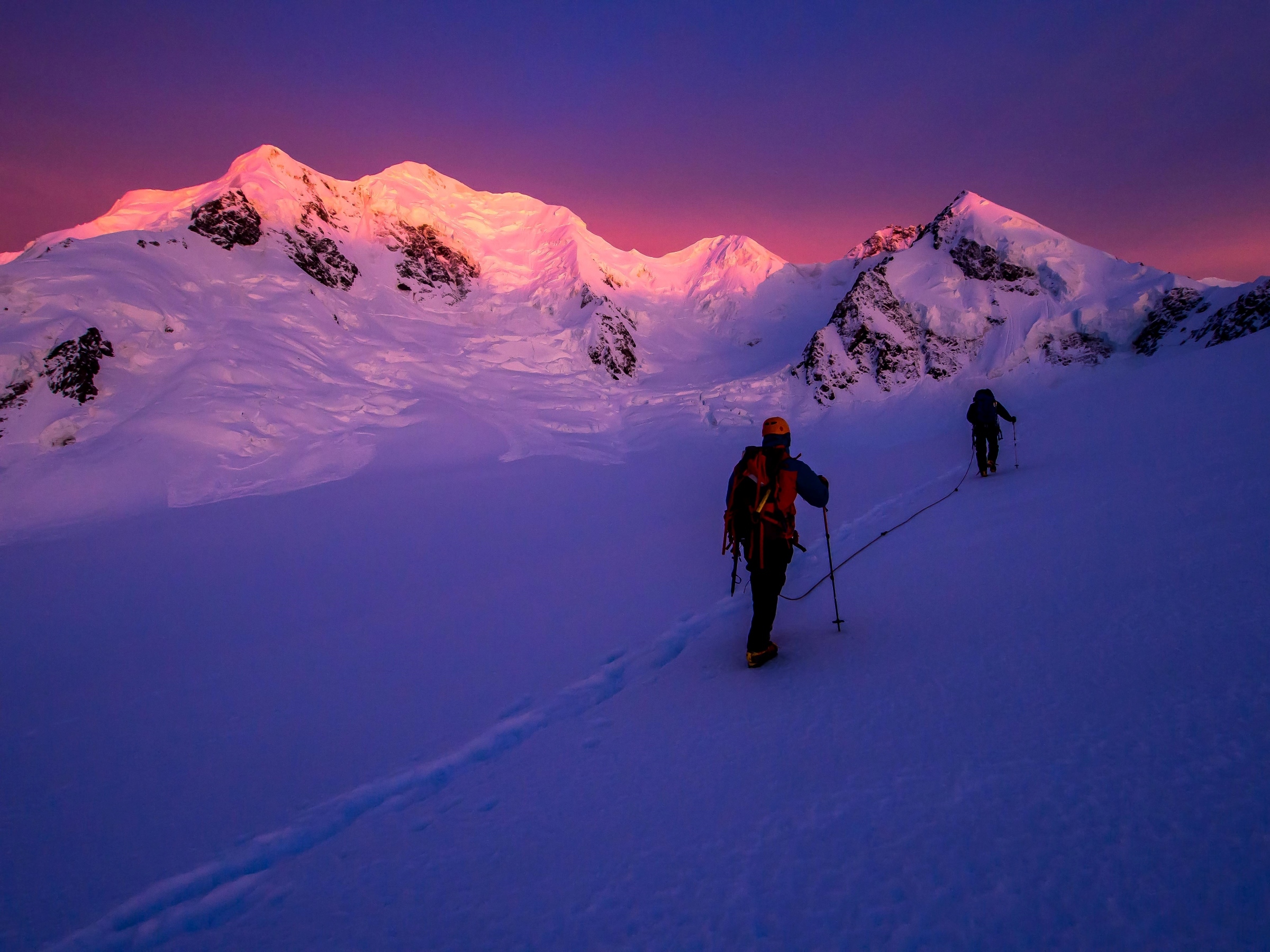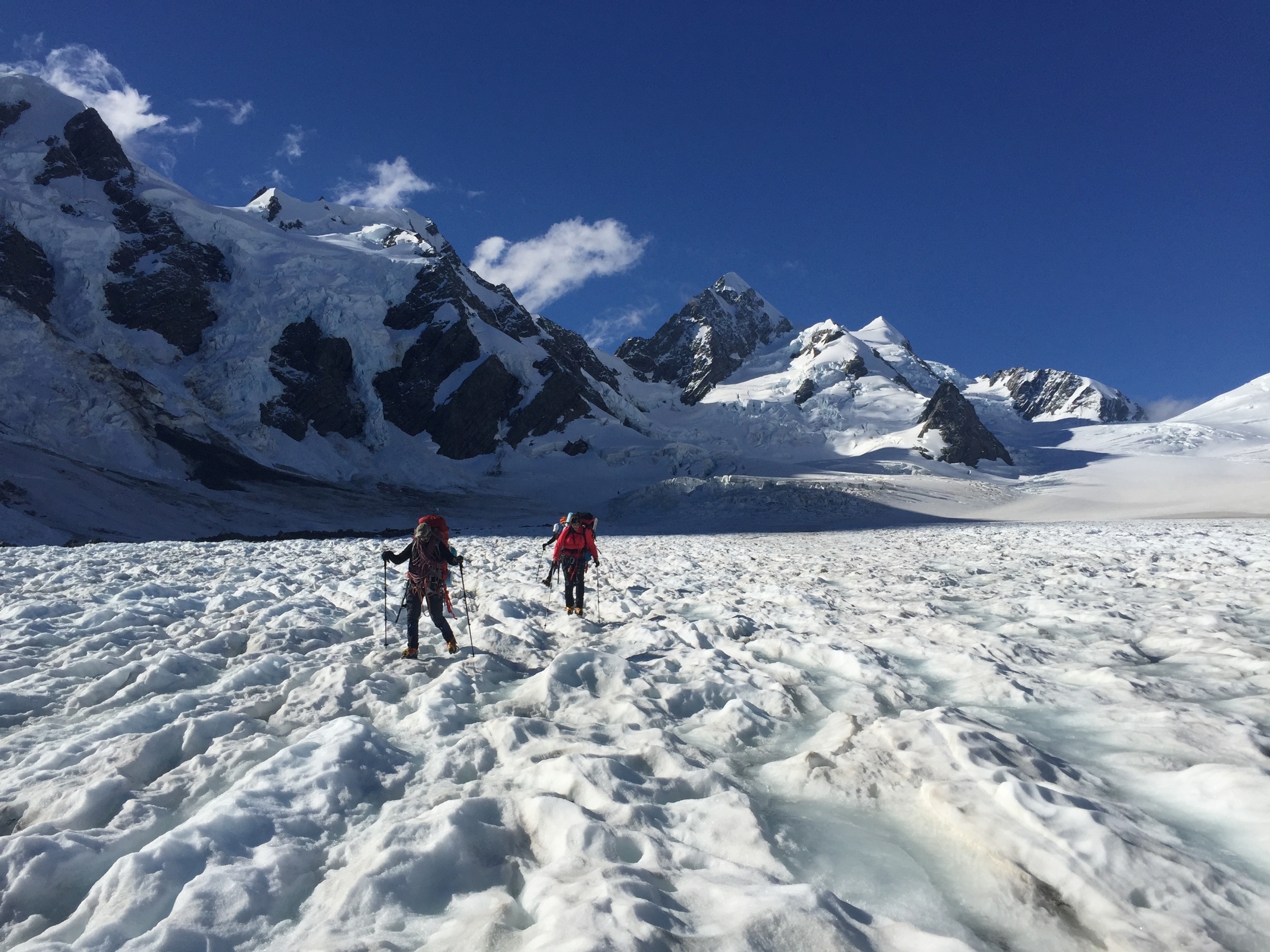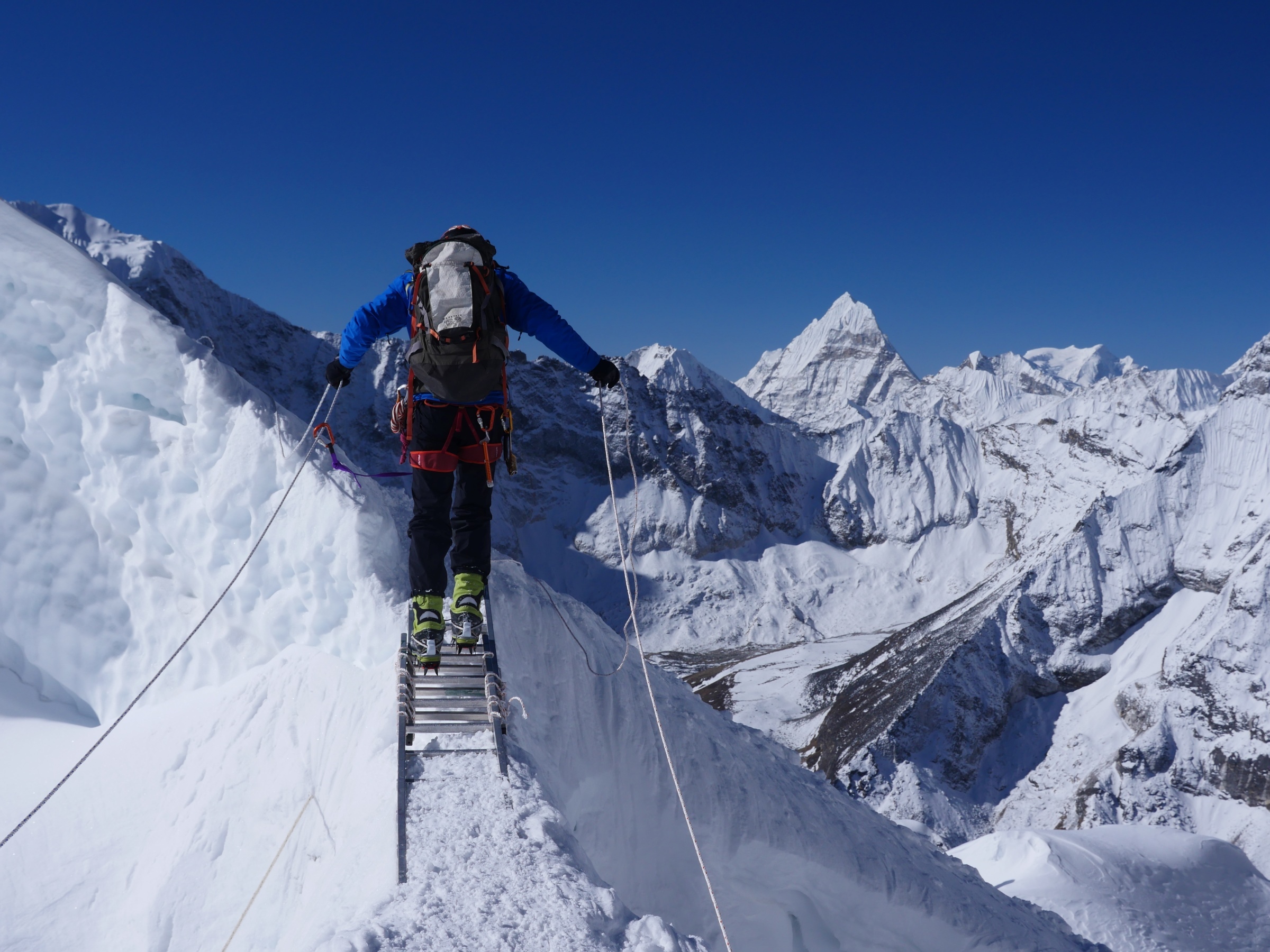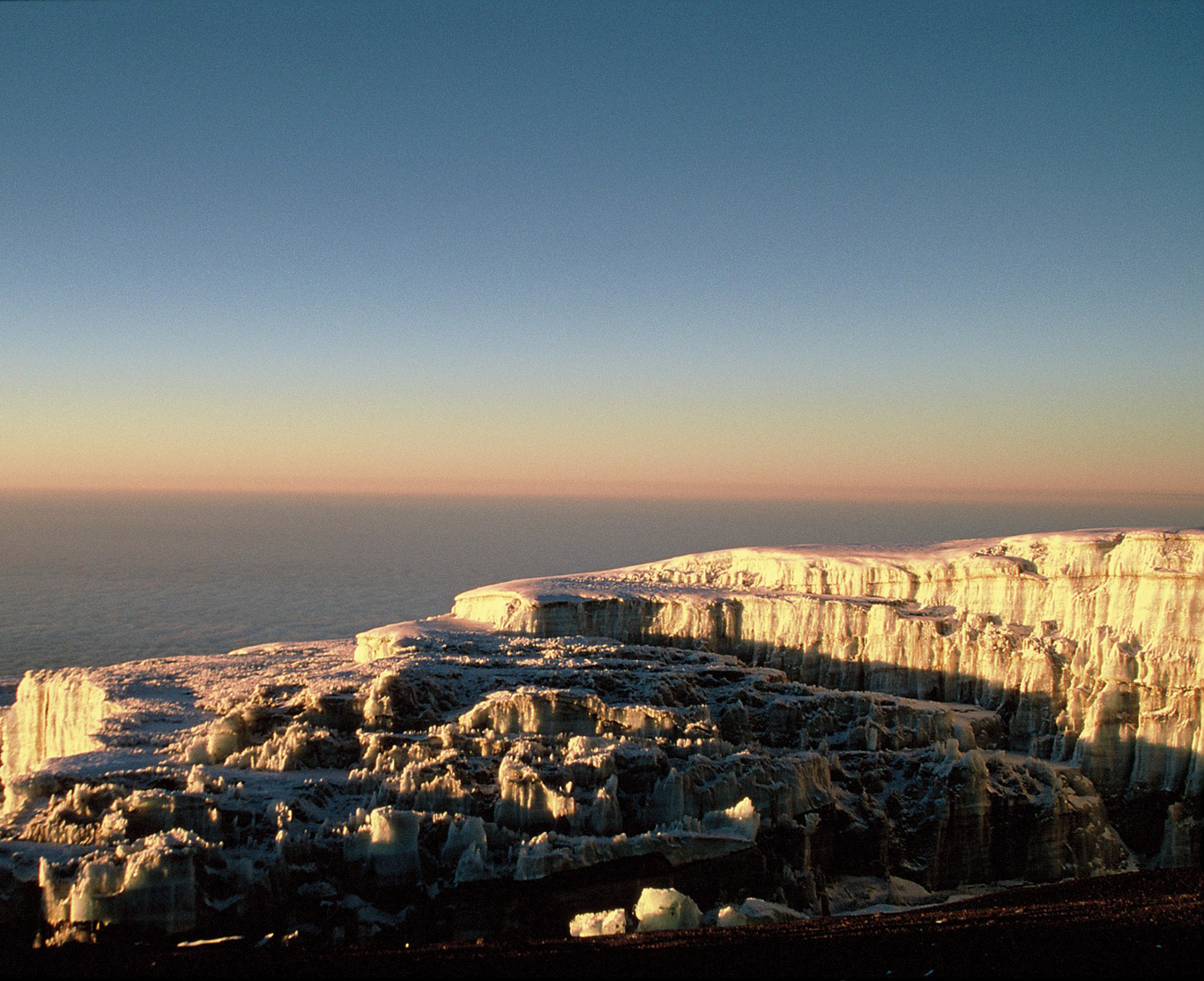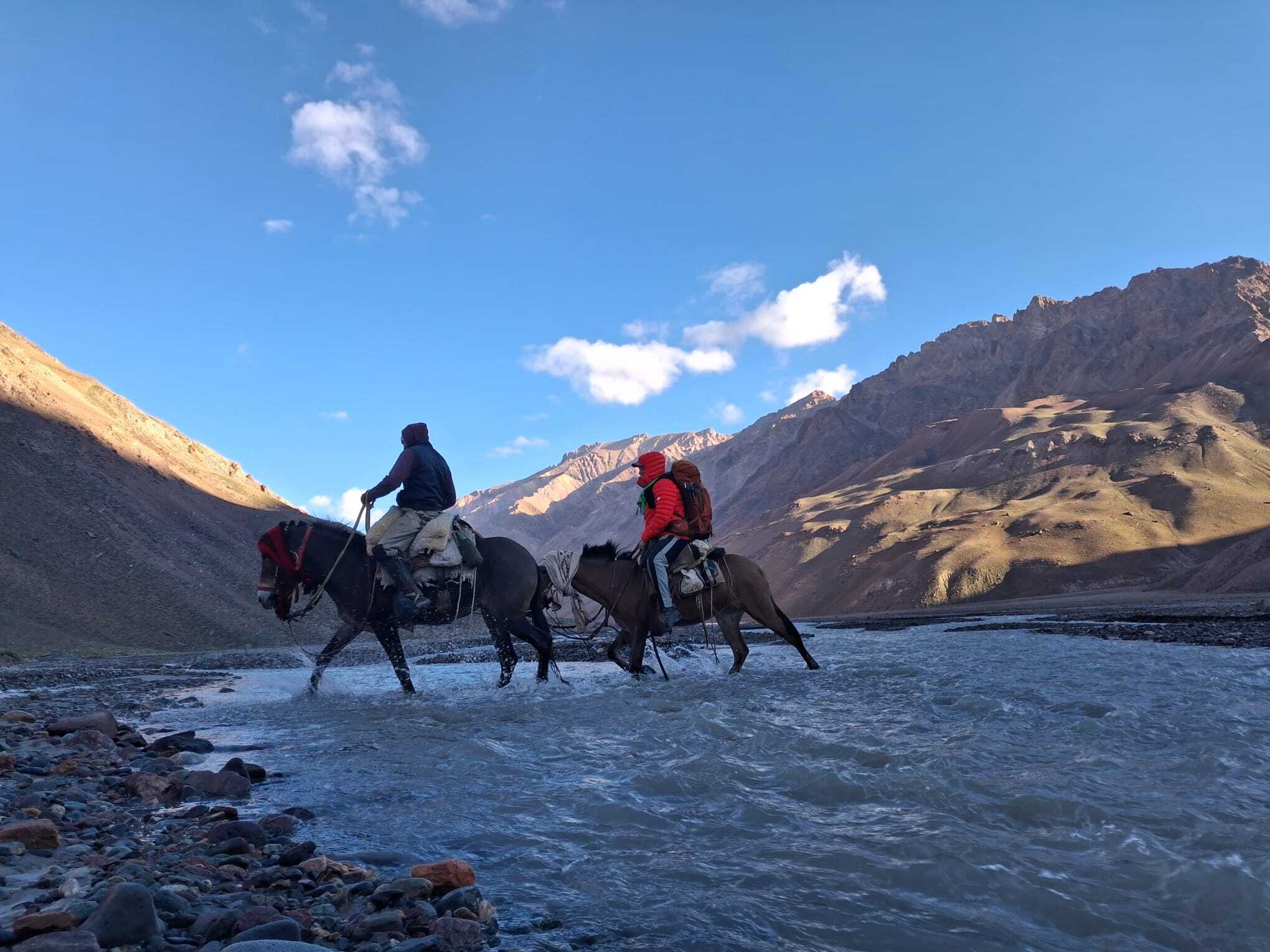The most important prerequisite is a high level of aerobic fitness, and the ability to carry a backpack. As we fly the course in and out of the mountains, extended heavy load carrying is usually not required - only when moving base camps.
Big mountain training at a 'low' altitude. Learn the skills to climb expedition-style for your Seven Summits mission in New Zealand's Southern Alps.
The Mount Cook region is a perfect training and proving ground for mountaineers. Sir Edmund Hillary trained for his successful Everest and Antarctic expeditions here, and some of the world’s most successful climbers and guides began their climbing careers at Mount Cook.
Aoraki Mount Cook area offers Himalayan vertical scale, steep glaciers, and fast-changing weather. The benefit of training here is the high-altitude feel, without the dangers of extreme cold and lack of oxygen.
Our Expedition Course base camp is at a prime location, deep in Aoraki Mount Cook National Park. We fly you in and out, to avoid heavy load carrying, and to maximise training time. Our expedition course guides are veterans of the expedition climbing world, with experience in the Himalayas, South America, Alaska, and Antarctica.
- Led by veteran expedition guides
- Tailored to match your goals and objectives
- Suitable for aspirant Seven Summits climbers
- Training available for individuals or groups
Climbing Ability
Climbing Ability
Any
Elevation
Elevation
2,000m/6,650f
Duration
Duration
6 days
Location
Location
Aoraki Mount Cook, NZ
Planning. Set up. Fly in.
Camping Skills
Climbing and Mountaineering Skills 1
Climbing and Mountaineering Skills 2
Crevasse Rescue Day
Climbing and Mountaineering Skills 3
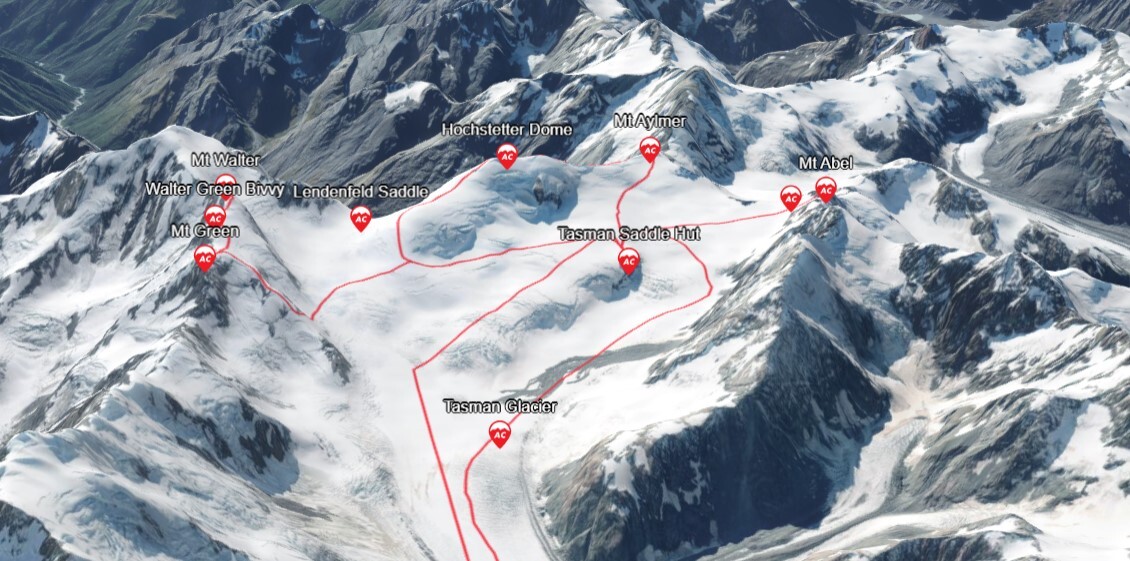
Departures and Pricing
| Start/End | Departing from | Quantity | Pricing | Notes | Book |
|---|---|---|---|---|---|
| Oct - Apr 2026 | Aoraki Mount Cook, NZ | 1:1 guide to climber ratio | $10,495 NZD $ | ||
| Oct - Apr 2026 | Aoraki Mount Cook, NZ | 1:2 guide to climber ratio | $5,950 NZD $ | ||
| Oct - Apr 2026 | Aoraki Mount Cook, NZ | 1:3 guide to climber ratio | $4,450 NZD $ | ||
| Oct - Apr 2026 | Aoraki Mount Cook, NZ | 1:4 guide to climber ratio | $3,725 NZD $ | ||
Want to head straight to the big mountains? Check out the Himalayan Climbing Course
PREPARE
Previous alpine climbing or rock climbing experience is not required.
- Camp management: tent camping, and emergency shelter options
- Fixed-line techniques and alpine self-contained rope craft
- Basic crampon and ice axe use
- Glacier travel and self-rescue
- Sled fixing and towing
- How to travel and climb safely in extreme, glaciated mountain terrain
- Mountain weather and snow conditions analysis
- Navigation
- Decision-making and risk analysis at altitude

The Adventure Consultants story evolved from the Southern Alps of New Zealand where large glaciated mountains forged our passion for high places. It is a legacy that still exists today through guided ascents and instruction programs. We work with the best guides in the country to bring you high-quality programs that introduce you to the best the country has to offer and we regularly partner with Alpine Guides (Aoraki) to provide professional guiding under the IFMGA qualification program.

The price of your trip includes the following:
- Professional NZMGA/IFMGA mountain guide
- All meals including snacks and energy bars
- Helicopter access and egress from the mountains
- Mountain Hut fees (as required)
- Local accommodation, as required
- Free use of a range of technical equipment.
Just how fit is 'fit enough'? Mountaineering is a demanding activity. The fitter you are the more you will enjoy your time with us. Unless you regularly climb, bushwalk/hike, and are used to long days carrying a pack, you will need to train for mountaineering.
Mountaineering is primarily an aerobic activity
Strength is important for lifting a pack, but it is more important to build up your aerobic fitness level and stamina for long climbing days. Aerobic fitness can only be improved over months - so start your training program now.
As you come close to the time for your climbing trip try to use a few weekends to load up with a 7-10 kg pack and walk all day (8 hours), up hills, if possible, to work on endurance.
Don’t underestimate how rigorous mountaineering can be. It is better to be over-prepared.
See our Fitness Training page for training tips and programs.
The summer climbing period extends from November to early-April. You must be prepared for a wide range of conditions, from very warm, to cold snowy days. As the summer season advances access on to climbing routes will change.
Summer Temperatures and Daylight Hours
- Actual air temperatures may be 8°C, but can feel like 28°C due to reflected radiation.
- Coolest period: November to mid-December, and March-April. Range -10°C to +10°C
- Warmest period: January and February. Range -5°C to +15°C
- Daylight hours: 05:00 to 21:00, with shorter days later in the season.
Changing Snow Conditions
During November and December access on to routes is usually easier, due to fewer crevasses. Expect fresh snow during storms. Your guide will place greater emphasis on avalanche awareness. Avalanche transceivers are normally carried.
The snowpack is deeper and "wetter". Conditions can be soft underfoot early in the season, especially in the afternoon.
From January onwards the snowpack will consolidate (shallower foot penetration). Crevasses are larger. Crevasse bridging is weakest. Less chance of snowfall. Rock fall hazard increases.
Late Season - March onwards: Conditions are typically "hard" underfoot. Crevassing is at its greatest extent. Night temperatures are dropping. Greater chance of snowfall.
For international visitors, Christchurch or Queenstown are the main entry points to the South Island, with the most public transport options. Christchurch has more direct flights.
Intercity Coaches
Intercity Coaches provide direct daily services routes to Aoraki Mount Cook to and from Queenstown and Christchurch. Visit the Intercity website here. We recommend buying a FlexiPass to make considerable savings on your bus fare.
Cheeky Kiwi Travel
Get a shuttle directly to Mount Cook with Cheeky Kiwi Travel. They operate out of Christchurch and Queenstown.
If you have a mountaineering trip booked with us and are unable to coordinate transport from Twizel, please check in with us. We can help arrange transport from Twizel to Mt Cook.
In the remote mountains of New Zealand, there are no cable cars or roads to high elevations to provide easy access to the mountains. Walking into many mountain venues can use up to 2 days of your trip, across very rugged terrain.
To make the best use of your time many of our trips use aircraft access. When you arrive the scale, and nature of the terrain, will make the logic for flying obvious.
Flying access and egress is included in the cost of the Technical Mountaineering Course.
Walking out from your mountain venue is possible, but flying out is by far the more popular choice. Walking out may be beyond your fitness, especially at the end of a long trip. Conditions and weather may dictate that a flight out is the safer choice. Your guide will discuss these options with you.
Once you have made your booking we strongly advise buying travel insurance, to cover you for unexpected cancellations, or other misadventures on your travels.
Travel insurance cancellation policies will protect you from losing the deposit for your trip if you have to cancel unexpectedly.
Insurance specifically for mountaineering activities is optional. New Zealand's Accident Compensation Corporation (ACC) system extends to all visitors to New Zealand and includes cover in the event of an accident.
Any travel agent, or insurance broker (even your credit card provider) can assist with standard insurance, including insurance for trip cancellation.
The New Zealand Alpine Club can provide insurance coverage for their New Zealand and Australian members visiting NZ.
